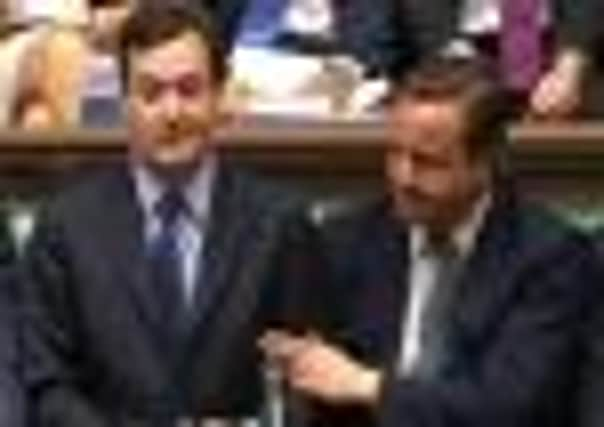Duncan Hamilton: When donations and abuse of power are two sides of the same coin


And yet, a moment’s reflection tells you that the media sting which caught the Tory party co-treasurer, Peter Cruddas, blatantly offering political access and influence in return for a £250,000 donation is about so much more. It could just as easily have happened to the last Labour government. Remember Bernie Ecclestone? So be clear – this is a systemic problem, not simply a Tory one.
That then forces us to consider the bigger questions.
What kind of democracy do we really want and what are we prepared to do to get it? Is state-funding the answer? Or is capping private donations? Crucially, where does the right of the individual to donate to a party give way to the public interest in a fair electoral contest?
Advertisement
Hide AdAdvertisement
Hide AdThe issue isn’t new. In November 2011, Sir Christopher Kelly and his Committee on Standards in Public Life published a thoughtful and considered report together with a series of recommendations for reform. Inter-party squabbling means that none have been implemented.
The headline proposals were to cap at £10,000 the amount any individual could give to a party in a year, limits on party spending in elections and tax relief on small donations to encourage parties to connect more directly with a greater number of smaller donors. All this sounds reasonable but isn’t there a danger of confusing two separate but related issues – money and influence.
Personally, I don’t find the concept of big money donations in politics offensive. Are we really saying that a well-intentioned individual can make big donations to charity, to the church, to a hospital but cannot make a substantial donation to a political party which he or she believes is a force for good? That bothers those of us who believe in politics as a vehicle for progress in the world.
If trade unionists want to defend their interests through political donations to whichever party, I struggle to see why that isn’t their right to do so. If others believe in low tax, they should be able to contribute to a party which promotes their world view.
For me, therefore, the problem isn’t the donations at all. Rather it is the corrosive sense that such a donation is buying undue or inappropriate influence.
Tackling either the perception or the reality of inappropriate access or influence is really what this debate should be about. That doesn’t mean imposing arbitrary capping levels on donations, it’s about shining a light on the relationship between donor and recipient.
The vital role of the media as watchdog has again been illustrated in this case. That tells you what a powerful tool public exposure can be.
But let’s be clear, what was so offensive was less the £250,000 sought (each of the major parties has had multiple donations much larger than that before) and more what was offered in return. It was the pledge from the Tory treasurer that for £250,000, “things will open up” and that “it will be awesome for your business” which turned a legitimate large donation into an inappropriate and disgraceful episode.
Advertisement
Hide AdAdvertisement
Hide AdExposing the terms and conditions of any donations is, therefore, the answer. Any donor willing to make a contribution that large should expect to have every interaction with the party or government (whether social or professional) thereafter noted and publicly registered.
If the donor comes to Downing Street, that needs to be known.
If representations are made on the donor’s behalf by a third party, that needs to be recorded.
Just as the necessary transparency in MPs’ and MSPs’ financial affairs was assured by a detailed public register, so the level of detail in relation to the limited number of big donors seems to me the most likely way to separate those who are seeking undue influence from those who are giving from a vocational or charitable perspective. Such people would have nothing whatsoever to lose from a regime of openness.
Would some donors run a mile? Yes, but so be it.
If they want to give large sums of money towards a party seeking to form a government, they must expect to be known and to be accountable for the conduct of that relationship.
That is the price they pay for the right to donate sums that the ordinary voter cannot contemplate.
As Peter Cruddas will now confirm, there is nothing like the glare of publicity to deter those who seek to abuse the system.
A new regime of transparency and detailed disclosure can better balance the rights of the individual and the public interest in fair elections.
It is also something, unlike the Kelly Report, on which all parties can surely agree?